

The Complete
Trauma-Sensitive Mindfulness Training:
A Two-Part Comprehensive Program for Mindfulness Practitioners

TRAUMA-SENSITIVE MINDFULNESS:
The Introductory Guide to Recognizing Trauma, Responding Skillfully, and Preventing Retraumatization
A 5-Module Online Course

ADVANCED
TRAUMA-SENSITIVE MINDFULNESS:
Widening the Window of Tolerance and Supporting Trauma Recovery
A 7-Module Online Course
At a moment when the impacts of trauma are widespread, there’s an urgent need for mindfulness practitioners who can recognize trauma, respond effectively, and support trauma recovery.



Trauma is a form of stress. Mindfulness has been shown to help reduce stress. Therefore, anyone suffering from trauma would benefit from practicing mindfulness.
Straightforward, right?
Not necessarily. Paying close attention to one’s inner-world in meditation can actually create problems for people who’ve experienced trauma. Despite their best efforts, people can end up stuck, dysregulated, and even retraumatized.
To guard against these pitfalls, you can train to be a Trauma-Sensitive Mindfulness practitioner.
In a short amount of time, you can acquire the skills to recognize trauma, respond to it skillfully, and prevent retraumatization in mindfulness practice.
You can learn the specific reasons people run into difficulty in meditation, and specific tools to help them avoid dysregulation and access the full power of mindfulness practice.
But the commitment to “do no harm” only scratches the surface of what mindfulness can offer trauma survivors.
The full potential of mindfulness practices to support trauma recovery can remain untapped if we don’t develop beyond this initial level of training.
With advanced skills, you can offer trauma survivors practices to help them be safely present with a greater range of experiences—ultimately supporting their path of trauma recovery.
A key concept on the path to becoming trauma-sensitive is the window of tolerance—an optimal zone of arousal in the nervous system we can track to support safe mindfulness practice.
As a TSM practitioner, you can learn to identify when someone is outside of their window of tolerance, and then respond with specific modifications that can help them access an optimal zone of arousal and receive the full benefits of mindfulness practice.
But staying in one’s window isn’t the only answer to trauma recovery.
With time and practice, people can learn to widen their window of tolerance and expand their capacity for presence.
In safe and strategic ways, basic mindfulness can be paired with other interventions that can enhance one’s sense of agency, self-worth, and resilience. While mindfulness practices can’t “cure” trauma, they can play a radically supportive role in promoting self-regulation and trauma healing.
Because of this, we combined two training courses: one that teaches you to prevent retraumatization and the second to help people widen their window of tolerance.

Now you can equip yourself with the Complete Trauma Sensitive Mindfulness Training Program for Practitioners
This comprehensive, two-part training includes the fundamental components of preventing retraumatization AND advanced tools to help you support trauma survivors on their path to recovery in mindfulness practice.
The Complete Trauma-Sensitive Mindfulness Training Program for Practitioners is a two-part, self-paced training program designed to offer you foundational and advanced skills in Trauma-Sensitive Mindfulness.
This comprehensive training includes the theory and practice you’ll need to recognize and respond skillfully to trauma symptoms. Whether you’re a meditation or yoga teacher, religious or classroom teacher, or a mental-health professional who utilizes mindfulness, this course is designed for you.
Here’s a closer look at exactly what’s included in
The Complete Trauma-Sensitive Mindfulness Training:
A Two-Part Comprehensive Program for Mindfulness Practitioners
PART one
TRAUMA-SENSITIVE MINDFULNESS:
The Introductory Guide to Recognizing Trauma,
Responding Skillfully and Preventing Retraumatization
DESIGNED FOR MINDFULNESS PRACTITIONERS

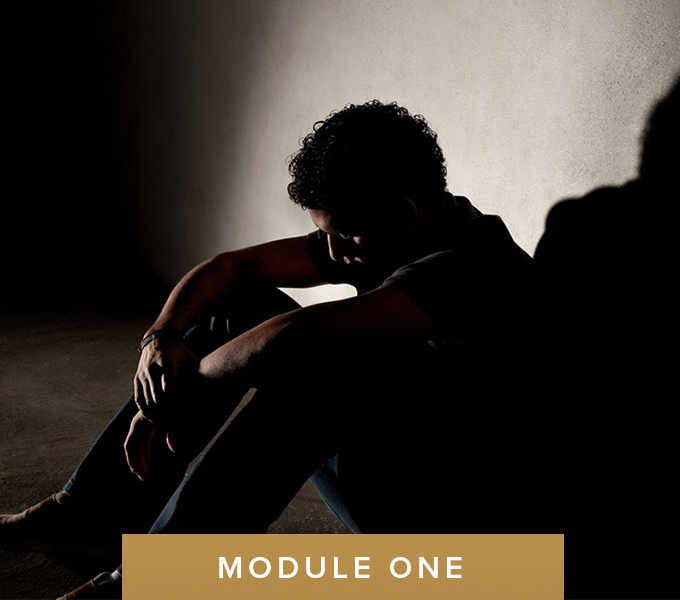
Facing The Trauma that Surrounds Us
Here you’ll anchor into a foundational understanding of trauma, explore its prevalence, and define the principles and practices of Trauma-Sensitive Mindfulness.
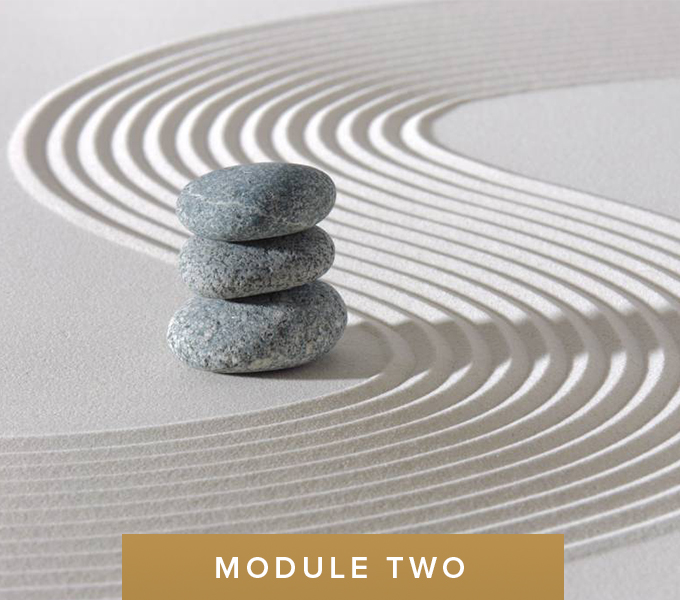
Exploring the Window of Tolerance and Why It Matters
In this module you’ll explore the Window of Tolerance—a fundamental tool for assessing whether you are helping or hindering trauma survivors.
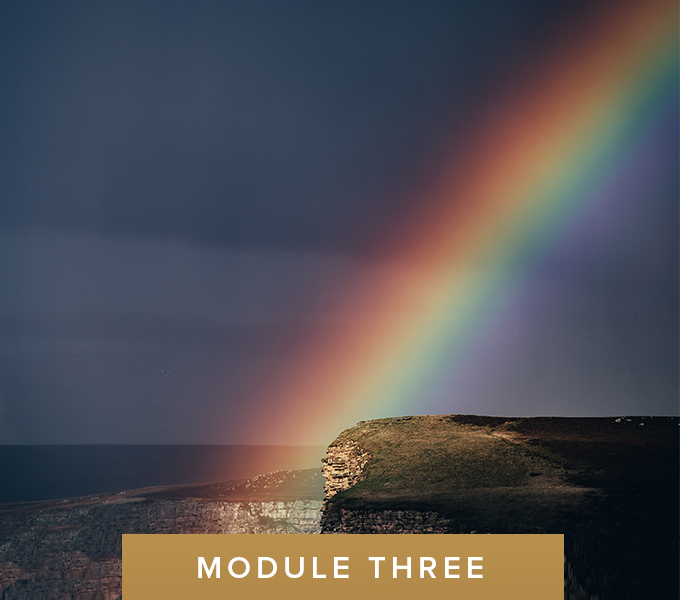
Understanding the Double-Edged Sword of Mindful Attention
Here you’ll focus on the double-edged sword of mindful attention and unpack skillful ways to shift and reorient attention during mindfulness practice.
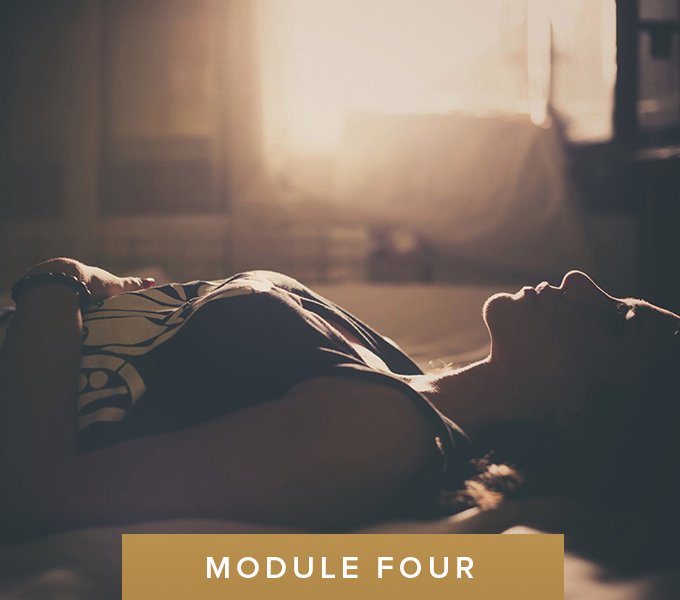
Keeping the Body in Mind
Here you’ll turn your attention towards the body, focusing on how it can become a minefield for trauma survivors, and specific tools and adaptations you can offer in practice.
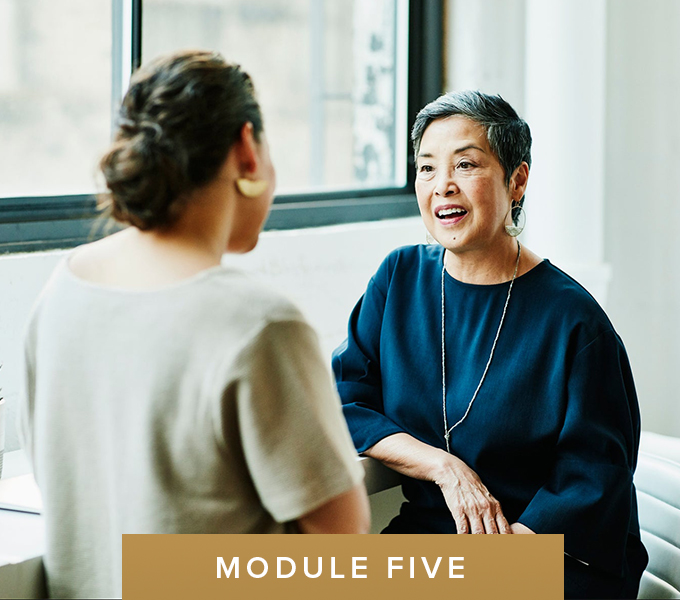
Leveraging the Power of Relationship
Here you’ll look at the connection between mindfulness meditation and the neurophysiology of belonging – including tools to help establish interpersonal safety and support mindfulness practice.

Working with Social Context
In this bonus workshop, you’ll explore the importance of understanding the social conditions that shape people’s experience of trauma, and how you can be an effective TSM practitioner in this domain.
After you complete Part One, you’ll be:
PART two
ADVANCED TRAUMA-SENSITIVE MINDFULNESS:
Widening the Window of Tolerance and Supporting Trauma Recovery
A COURSE FOR MINDFULNESS PRACTITIONERS

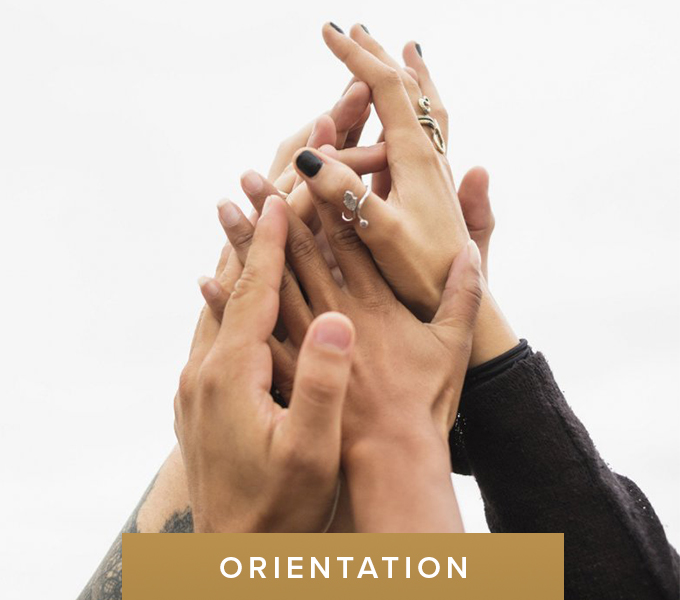
Meeting the Moment
In the Orientation, you’ll learn the three steps of widening the window of tolerance and how to get the most out of the course.
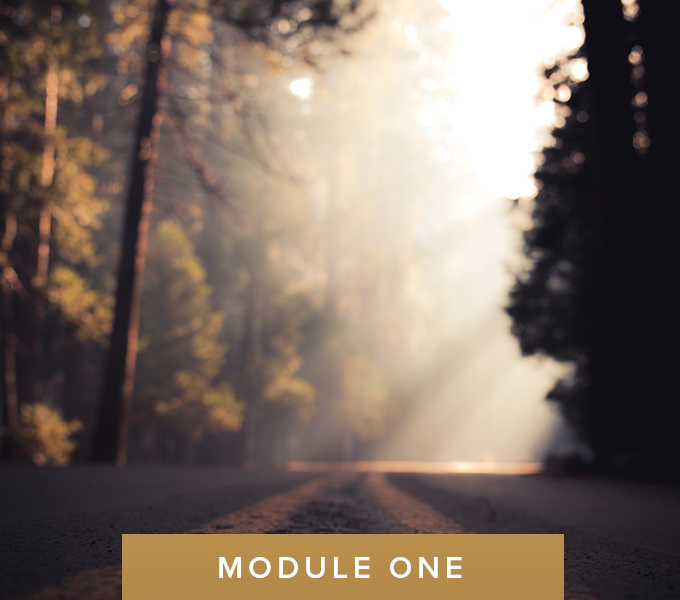
Mindful Gauges
In this session, you’ll learn about an essential tool of discernment that supports choice, agency, and, ultimately, trauma recovery.
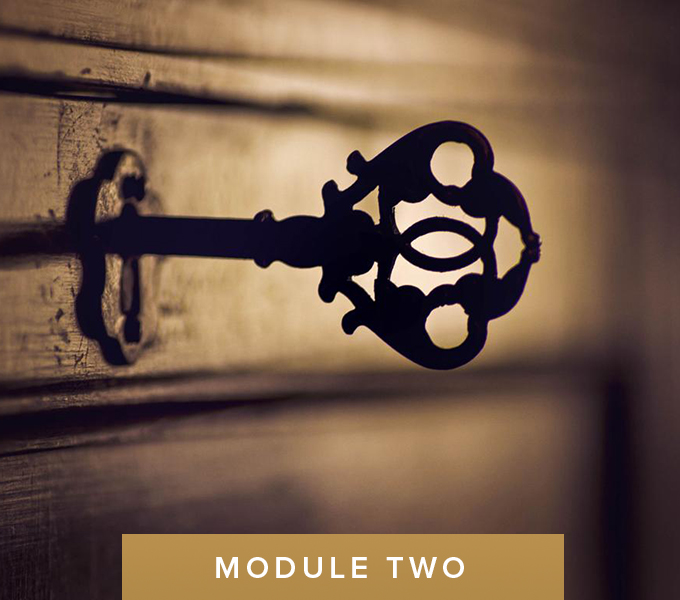
Generating Safety
In Module Two, you’ll learn a series of embodied mindfulness practices to support safety and self-regulation in mindfulness practice.
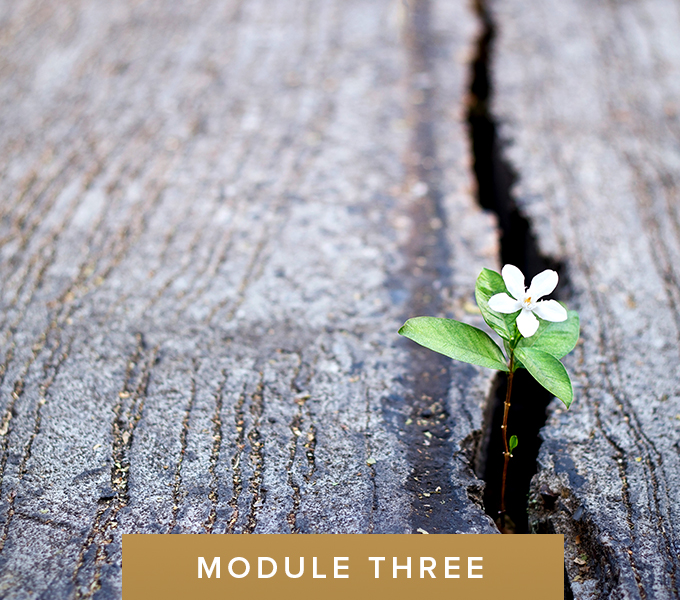
Trauma and Resilience
In Module Three, you’ll discover how resilience and resourcing practices support safety, self-regulation, and ultimately help widen the window of tolerance.
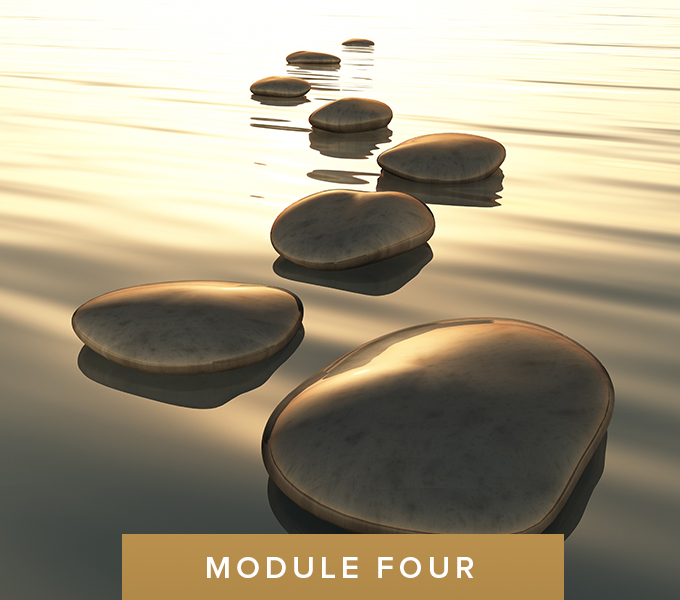
Trauma-Sensitive Body Scans
From cultural adaptations to best practices before, during, and after a body-scan, this comprehensive module provides advanced training in TSM bodyscans.
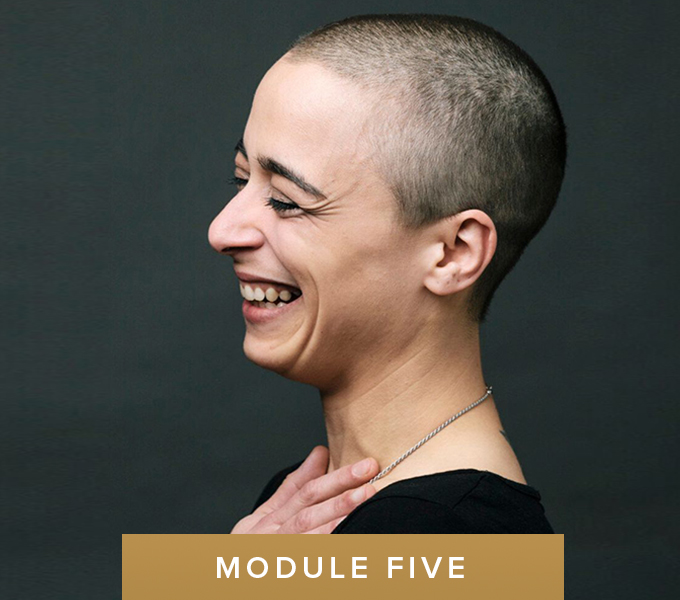
Mindful Self-Compassion
In Module Five, you’ll explore the power of mindful self-compassion in trauma-sensitive practice, including how to work skillfully with shame.
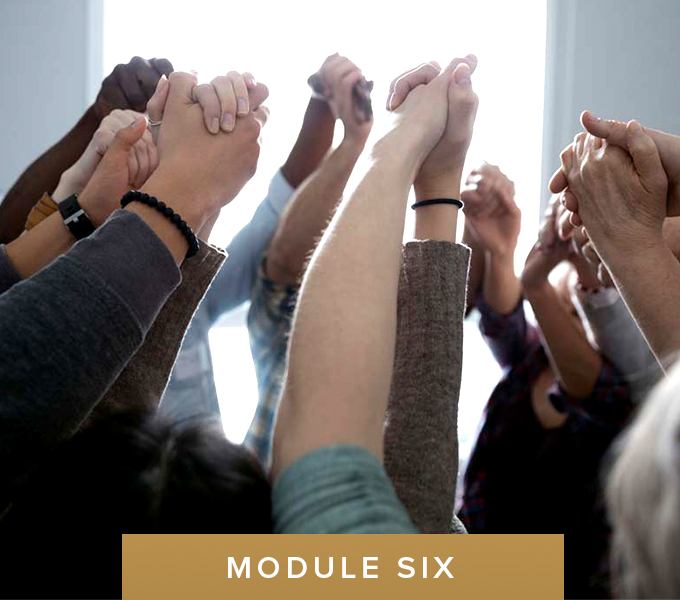
Truth, Reality, and Social Context
In Module Six, you’ll take a dive into how best to create belonging in the settings you work within—without disappearing dynamics of power and social context.
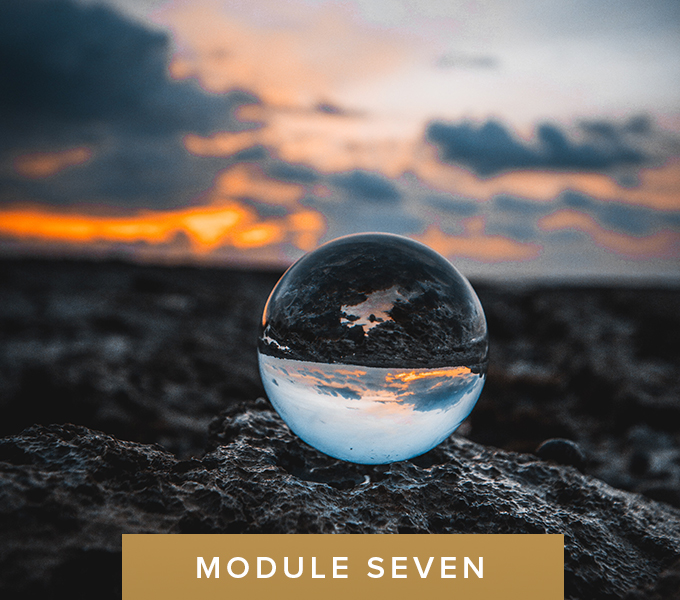
Cultivating Presence
In Module Seven, you’ll learn how the mindfulness practice known as RAIN (Recognize, Allow, Investigate, Nurture) helps cultivate presence and why this is so powerful in trauma recovery.

Towards Completion
In the Finale, you’ll review the new tools available to you within TSM and discover specific ways they complement one another as you take your learnings into the world.
What people are saying about The Complete Trauma Sensitive Mindfulness Training:
“This was the single best course I’ve ever taken. The authenticity, integrity, and care of the delivery were unparalleled.”
—Lyssa Menard
Business Coach, Health Psychologist,
and Founder of Strategies for Change
“David’s work has been invaluable to students during my mindfulness classes to outpatient veterans. Introducing the principles of trauma-sensitive mindfulness beginning with the orientation session has made it easier for Vets with any trauma. “
—Rich Cohen
Certified Mindfulness-Based
Stress Reduction Instructor
“I was especially struck by David’s presence and instruction. He truly embodies kindness, acceptance, flexibility, and curiosity. Without arrogance, he exudes confidence in his own truths and understandings of trauma and trauma treatment. “
—Judy Bernstein
Psychologist and Certified Mindfulness-Based
Stress Reduction Instructor
“Everything about this training was more than I anticipated. I look forward to using this work with my counseling clients and in the wellness services provided for the community.”
—Johanna Travieso
Licensed Professional Counsellor
“A truly top notch and transformational training in every respect! A just-right balance between didactic and interactive/experiential learning. Loved the flow and variety of the sessions. The supplemental resources are brilliant, and very generous, exceeding expectations. I’ll be returning to them often.”
—Alison Purnell
National Health Service Counsellor (UK)
and Mindfulness Teacher
“I am extremely grateful for having been a part of this training. It will forever change the way I teach meditation and mindfulness.”
—Jacqueline Piazza
Mindfulness Meditation Instructor

ORIENTATION

MODULE ONE

Module One Guest Faculty Session Features:
BABETTE ROTHSCHILD
Babette Rothschild, MSW, LCSW, is the author of five books on trauma, including the bestselling The Body Remembers: The Psychophysiology of Trauma and Trauma Treatment (Norton, 2000, 2017). Babette also coined the term “mindful gauges,” and we discuss how the practice is an important asset within TSM.

MODULE TWO

Module Two Guest Faculty Session Features:
STACI K. HAINES
Staci K. Haines is author of the books The Politics of Trauma: Somatics, Healing, and Social Justice (North Atlantic, 2019) and Healing Sex: A Mind-Body Approach to Healing Sexual Trauma (Cleis, 2007). She is also a co-founder of generative somatics—a multiracial organization bringing somatics and trauma healing to social and environmental justice organizations. Staci is an expert at helping people self-generate safety through somatic practice and brought decades of experience to this conversation.

MODULE THREE

Module Three Guest Faculty Session Features:
RICK HANSON
Rick Hanson, PhD, is a psychologist, Senior Fellow of the Greater Good Science Center at UC Berkeley, and New York Times best-selling author. His books include Resilient (Random House, 2018), Hardwiring Happiness (Random House, 2013), and Buddha’s Brain (New Harbinger, 2009), and he’s been an invited speaker at Oxford, Stanford, Harvard and has taught in meditation centers worldwide. Hanson is also a longtime mindfulness practitioner and an expert on the neuroscience of resilience, which made him the perfect guest faculty for this conversation.

MODULE FOUR
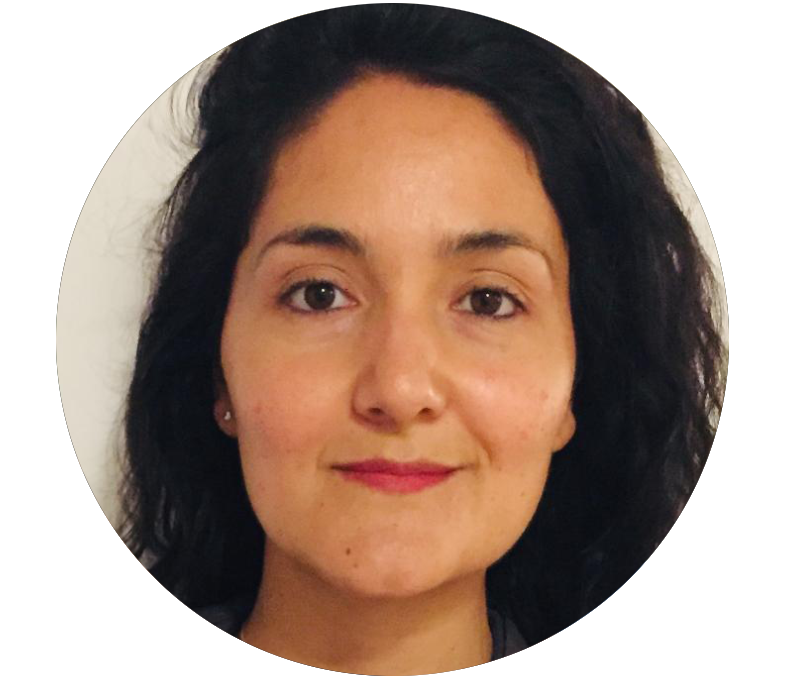
Module Four Guest Faculty Session Features:
PAULA RAMÍREZ DIAZGRANADOS
Paula Ramírez Diazgranados is co-founder of Colombia-based non-profit organization Breathe International, which promotes mindfulness for peacebuilding in conflict-affected areas all over the world. Paula has offered trauma-sensitive mindfulness within the United Nations, working closely with humanitarian workers and trauma survivors in South Sudan, Colombia, Nepal, and most recently with the displaced Rohingya refugee community in Bangladesh. She has developed trauma-sensitive body scans in multiple contexts and brings over a decade of experience to the conversation.

MODULE FIVE

Module Five Guest Faculty Session Features:
CHRISTOPHER GERMER
Christopher Germer, PhD, is a clinical psychologist and co-developer of the Mindful Self-Compassion (MSC) program. He is the author of The Mindful Path to Self-Compassion, and is a founding faculty member of the Center for Mindfulness and Compassion at Harvard Medical School. Germer has a keen interest in the relationship between mindfulness, shame, trauma, and compassion.

Module Five Guest Faculty Session Features:
SYDNEY SPEARS
Sydney Spears, PhD, LCSW, LSCSW, TCTSY-F, is a licensed clinical social worker, adaptive yoga facilitator, mindfulness instructor and professor in the Kansas City area. She is passionately committed to advancing social justice efforts through providing and maintaining a non-oppressive, trauma-sensitive, and culturally responsive practice.

MODULE SIX

Module Six Guest Faculty Session Features:
RHONDA MAGEE
Rhonda Magee, JD, is a professor of law at the University of San Francisco and author of the book The Inner Work Work of Racial Justice: Healing Ourselves and Transforming Our Communities Through Mindfulness (Random House, 2019). Also trained in sociology and mindfulness-based stress reduction (MBSR), Rhonda is a highly practiced facilitator of trauma-sensitive, restorative MBSR interventions for minimizing the effects of social-identity-based bias.

MODULE SEVEN

Module Seven Guest Faculty Session Features:
TARA BRACH
Tara Brach, Ph.D., is a meditation teacher and author of Radical Acceptance (Bantam, 2003) and True Refuge: Finding Peace & Freedom in Your Own Awakened Heart (Bantam, 2013). One of the most distinctive voices in Western Buddhism, Tara’s teachings often focus on the possibility of healing and spiritual awakening through mindful, loving awareness. She is the founder of the Insight Meditation Community of Washington, DC—one of the largest and most dynamic non-residential meditation centers in the United States—and co-founded the Awareness Training Institute with Jack Kornfield.

FINALE

The Complete
Trauma-Sensitive Mindfulness Training:
A Two-Part Comprehensive Program for Mindfulness Practitioners
TWO WAYS TO REGISTER:
Pay in Full Tuition
$1397 Regular Tuition
$997
1x Payment
PAYMENT PLAN TUITION
$1397 Regular Tuition
$523.50
2x Payment
100% Money-Back Satisfaction Guarantee
We’re so confident in the value The Complete Trauma-Sensitive Mindfulness Training delivers that we offer a full, no-questions asked, money-back guarantee if you decide you want to cancel your registration within 7 days of the start of the course. You can even keep any early-registration bonuses you receive — at no cost.
CONTINUING EDUCATION (CE) UNITS ARE AVAILABLE FOR THIS TRAINING
The Complete Trauma-Sensitive Mindfulness Training is proud to offer CE units through our CE partner for a wide variety of professions. The Introductory course offers a total of 6 CEUs and the Advanced course offers 14 CEUs. More information can be found below.
Is the Complete Trauma-Sensitive Mindfulness Training all pre-recorded materials?
Yes. The entire training was recorded while being taught to a live cohort of participants. These programs were dynamic, impactful, and participants reported significantly expanding their understanding of TSM through the course. To ensure more practitioners had access to this comprehensive training (and at the request of many practitioners), we converted the program to a self-paced study format designed for you to complete at your preferred pace.
Is this course intended for professional training or personal healing?
This course is offered as a professional training for mindfulness practitioners. While some benefits may result from learning or practices, it is not intended to be an individual trauma healing course.
I understand this is not a trauma healing course, but I am a mindfulness practitioner who has experienced trauma. Is this course for me?
If you’re taking the course explicitly to heal your own trauma, this course will likely not be a good fit for you. Given the ubiquity of trauma exposure, however, it’s common that a mindfulness practitioner taking the course will have experienced trauma, and we encourage you to pace yourself and be self-responsive as you move through the material. There’s also a 7-day money back guarantee with the course, so if you take the course and find that it’s not a good fit, you can always ask for a refund.
How long can I access the sessions online?
You will have lifetime access to all sessions following the completion of the course.
Is there a group discount available?
Yes, for groups of 5 or larger. Please email us at support@davidtreleaven.com to inquire.
Do you offer scholarships for this program?
Yes, we have scholarships available for this course. Given that trauma disproportionately impacts marginalized communities, these scholarships will prioritize people of color, poor and working class people, and others who are marginalized by systems of oppression and subsequently have less access to resources. If you would like to apply for a scholarship, please reach out to us at: support@davidtreleaven.com.
Will Continuing Education Units (CEUs) be offered for this course?
Yes. CEUs are offered for most professions for both the Introductory and Advanced TSM courses through our Continuing Education (CE) partner. The Introductory course offers a total of 6 CEUs and the Advanced course offers 14 CEUs. CEUs are broken down per module, so you can obtain the full 20 or a lesser amount. At the end of each course module, you will be presented with a link to our CE partner’s page, where you will be asked to pay a small fee ($15/module) and take a short true/false test to obtain the CEs for that module. More information, including the professions that our CEUs are available to, can be found on our CE partner’s page.
Here’s what leaders in the field are saying about David and Trauma-Sensitive Mindfulness:
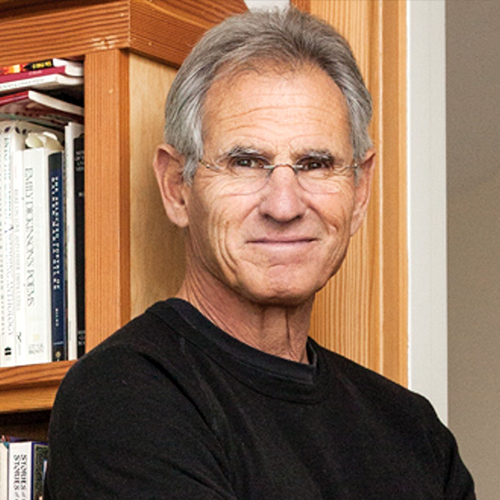
JON KABAT-ZINN, PhD
Founder, Mindfulness-Based Stress Reduction (MBSR)
“An essential ‘upgrade’ for anyone who thinks of her or himself as a mindfulness teacher, or is in training to become one.”

ZABIE YAMASAKI
Program Director of Trauma-Informed Yoga, UCLA
“Indispensable training for yoga and meditation teachers, as well as mental health professionals who are passionate about integrating mindfulness into their clinical practice.”

TARA BRACH, PhD
Author of Radical Acceptance and True Refuge
“Essential reading for meditation teachers, mental health practitioners and all those who have suffered from trauma and want to engage on a meditative path in a wise and healing way.”

SUSAN PIVER
NYT bestselling author of The Four Noble Truths of Love
“David Treleaven’s expertise is beyond valuable for students in our meditation instructor training programs—it is essential.”

ADRIENNE MAREE BROWN
NYT bestselling author of Pleasure Activism and Emergent Strategy
“An accessible and loving guide through the complex territory of trauma and healing.”

RICK HANSON, PhD
NYT bestselling author of Buddha's Brain and Hardwiring Happiness
“A rare combination of solid scholarship, clinically useful methods, and passionate advocacy for those who have suffered trauma.”

PRENTIS HEMPHILL
Former Healing Justice Director, Black Lives Matter
“We all deserve the kind of allyship and thoughtful practice this book calls us towards.”

REBECCA CRANE, PhD
Director, Centre for Mindfulness Research and Practice, Bangor University, UK
“David’s work on trauma-sensitive mindfulness is providing much needed clarity on this vital issue..his book is now on the essential reading list for our students!”

JESSICA MOREY
Executive Director, Inward Bound Mindfulness Education
“David is attuned, responsive and masterful in his teaching and presentation of these vitally important skills. . . he embodies the kindness, sensitivity and presence that he guides us to hold as we bring mindfulness to wider audiences.”
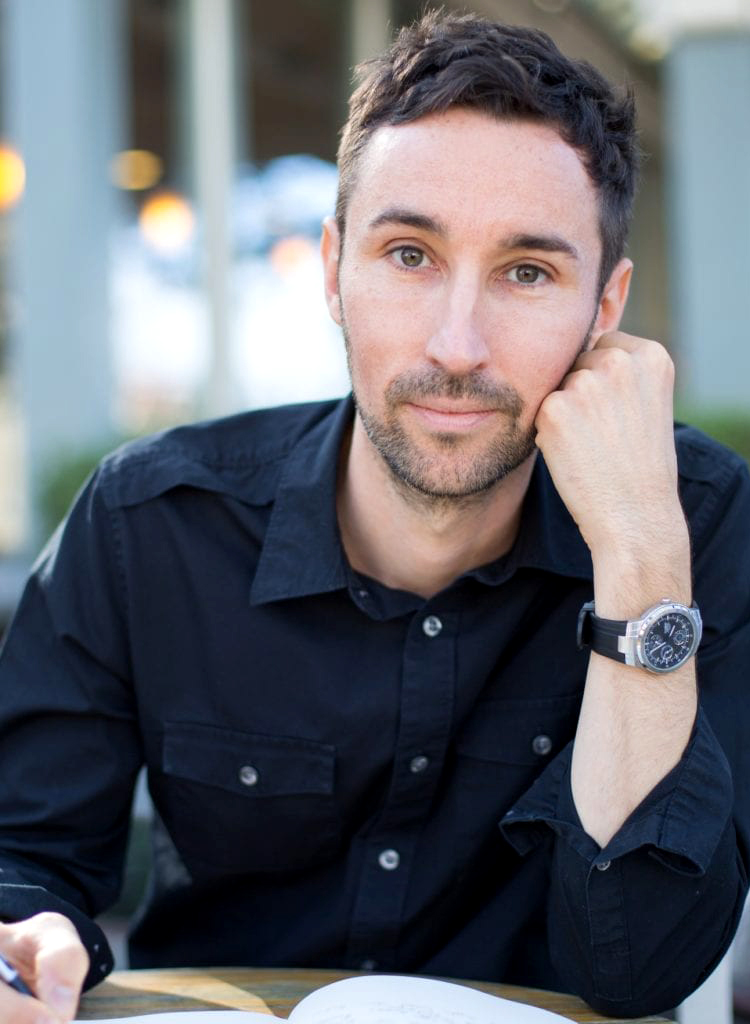
David Treleaven, PhD, is a writer, educator, and trauma professional working at the intersection of mindfulness and trauma. He is the author of the acclaimed book Trauma-Sensitive Mindfulness and founder of the Trauma-Sensitive Mindfulness (TSM) Community—a group of practitioners committed to setting a standard of care through mindfulness-based practices, interventions, and programs.
David focuses on offering mindfulness providers with the knowledge and tools they require to meet the needs of those struggling with trauma. Through workshops, keynotes, podcasts, and online education, he is closely engaged with current empirical research to inform best practices.
His work has been adopted into multiple mindfulness teacher training programs around the world, including UCLA’s Mindful Awareness Research Center, the Engaged Mindfulness Institute, and Bangor University’s MA in Mindfulness program in the UK.
